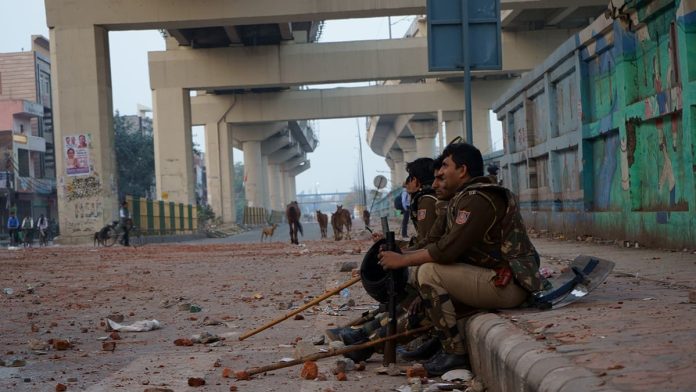In a significant judgment, a Delhi court has sentenced Lokesh Kumar Solanki — a member of the notorious Hindutva WhatsApp group “Kattar Hindu Ekta” — to three years’ imprisonment for promoting enmity and inciting violence during the 2020 anti-Muslim pogrom in Northeast Delhi.However, despite this conviction, questions loom large over the Indian government’s delayed and selective justice, especially when it comes to protecting Muslims from targeted violence.
The court found Solanki guilty under Sections 153A and 505 of the Indian Penal Code (IPC) for spreading hate messages against Muslims and encouraging others to participate in communal attacks. Additional Sessions Judge Parveen Singh said in the judgment that Solanki’s actions “added fuel to the already simmering tensions” and played a role in worsening the communal atmosphere instead of calming it.
Yet, while the court sternly acknowledged the gravity of the offense, it also noted that Solanki had already served more than three years in custody, effectively ending his punishment. He is now expected to walk free.
This verdict has revived painful memories of the 2020 pogrom that killed 53 people, the majority of them Muslims, and displaced hundreds. During the violence, WhatsApp groups like Kattar Hindu Ekta were reportedly used to plan attacks on Muslim homes, businesses, and lives. In one such chilling message, Solanki even claimed to have murdered two Muslim men and dumped their bodies in a drain.
Despite these horrifying admissions and concrete digital evidence, only a handful of the culprits have faced trial or conviction. For the Muslim community, justice remains elusive. While arrests and punishments are swiftly carried out when Muslims are accused — often even without full evidence — the same urgency is sorely lacking when Muslims are the victims. The state machinery has consistently failed to protect them, and in some cases, has even been accused of complicity.
This selective justice only widens the trust deficit between Indian Muslims and the institutions meant to safeguard their rights. It is not just about one convict — it is about hundreds who still roam free, emboldened by silence from the very top.
The fight for justice continues. But unless the Indian government stops dragging its feet and begins holding all perpetrators accountable — irrespective of their religious or political affiliations — true communal harmony will remain a distant dream.




